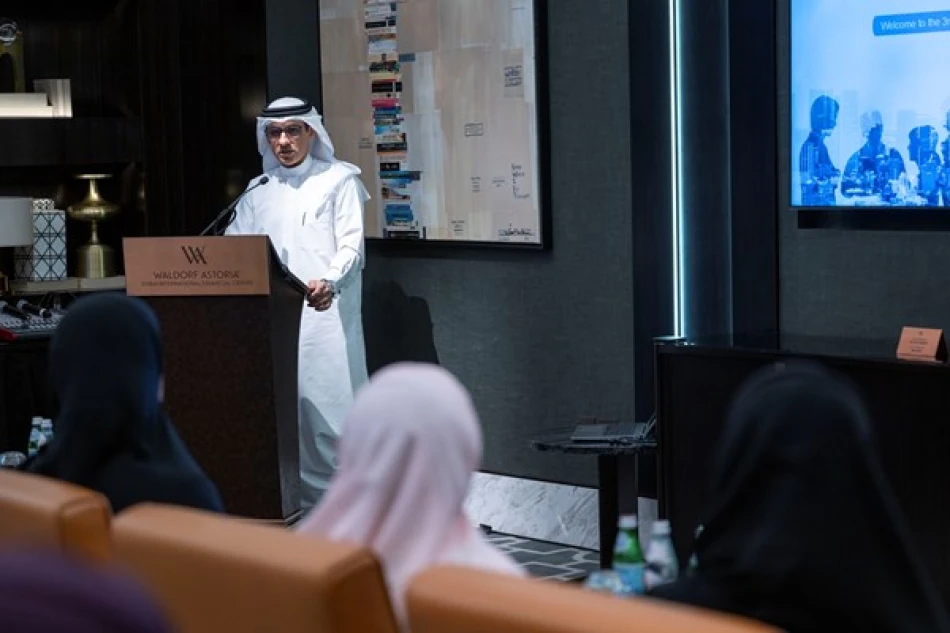
UAE Seeks Re-election to ICAO Council, Showcasing Aviation Expertise
UAE Positions Itself as Aviation AI Pioneer with Bold ICAO Council Bid
The UAE is making an ambitious play to maintain its influence in global aviation governance, seeking re-election to the International Civil Aviation Organization (ICAO) Council while positioning itself as a leader in artificial intelligence applications for the aviation sector. The Emirates will present over 25 working papers at the upcoming ICAO General Assembly, including groundbreaking AI projects and the launch of the first government accelerator laboratory within a UN organization.
Strategic Continuity in Global Aviation Leadership
The UAE's bid for another three-year term on ICAO's 36-member Council represents more than routine diplomatic engagement—it reflects the nation's determination to shape international aviation standards from within. Since first winning a seat in 2007, the Emirates has consistently secured re-election every three years, a testament to both its growing aviation prowess and diplomatic effectiveness.
This sustained presence has proven strategically valuable. The UAE now handles over 160 million passengers annually across its airports and contributes AED 338 billion (approximately $92 billion) to the national economy—representing 18% of GDP. Such figures underscore why maintaining influence over global aviation regulations matters significantly for the Emirates' economic future.
AI Innovation as Diplomatic Currency
The UAE's approach to this election cycle demonstrates sophisticated strategic thinking. Rather than relying solely on past achievements, the Emirates is leveraging cutting-edge technology initiatives to strengthen its candidacy and global aviation leadership credentials.
First-of-Its-Kind UN Laboratory
Perhaps most notably, the UAE plans to establish the first government accelerator laboratory within any UN organization. This facility will focus specifically on aviation applications, potentially setting precedents for how international organizations can harness emerging technologies. The initiative represents a significant financial and technological commitment that few countries could match.
Bilateral AI Partnership
The Emirates is also pursuing a bilateral agreement with ICAO specifically focused on artificial intelligence in aviation. Such partnerships allow the UAE to pilot innovative approaches while providing ICAO with practical testing grounds for new technologies—a mutually beneficial arrangement that strengthens the UAE's position as an indispensable partner.
Market Implications and Competitive Positioning
The UAE's strategy reflects broader competition among Gulf states to dominate aviation markets. While Qatar has invested heavily in its national carrier and Saudi Arabia pursues ambitious aviation expansion plans, the Emirates is differentiating itself through technological leadership and institutional influence.
For aviation investors and industry stakeholders, the UAE's ICAO initiatives signal several important trends. First, artificial intelligence applications in aviation are moving from experimental phases toward practical implementation. Second, countries with advanced aviation sectors are increasingly using international organizations to test and validate new technologies before broader rollouts.
Regional and Global Context
The UAE's approach mirrors successful strategies employed by other technology-forward nations. Singapore has similarly leveraged its compact size and technological capabilities to punch above its weight in international organizations. The United States has historically used its technological leadership to shape global standards across multiple sectors.
However, the UAE's strategy is particularly notable because it combines substantial financial resources with genuine operational scale. Unlike smaller nations that might offer innovation without implementation capacity, or larger nations that might lack agility, the Emirates offers both technological sophistication and practical testing environments.
Looking Ahead: Implications for Global Aviation
Should the UAE secure re-election—which appears likely given its track record and current initiatives—the implications extend well beyond diplomatic prestige. The Emirates is positioning itself to influence how artificial intelligence, sustainability measures, and government acceleration programs are integrated into international aviation standards.
This matters significantly for airlines, airports, and aviation technology companies worldwide. Standards developed and tested in the UAE through ICAO frameworks are likely to influence global adoption patterns, potentially creating first-mover advantages for companies that align with UAE-supported initiatives.
The UAE's continued ICAO presence also reinforces the broader shift in global aviation influence toward the Middle East and Asia, reflecting changing patterns of air travel demand and infrastructure investment that are reshaping the industry's geographic center of gravity.
Most Viewed News

 Layla Al Mansoori
Layla Al Mansoori






